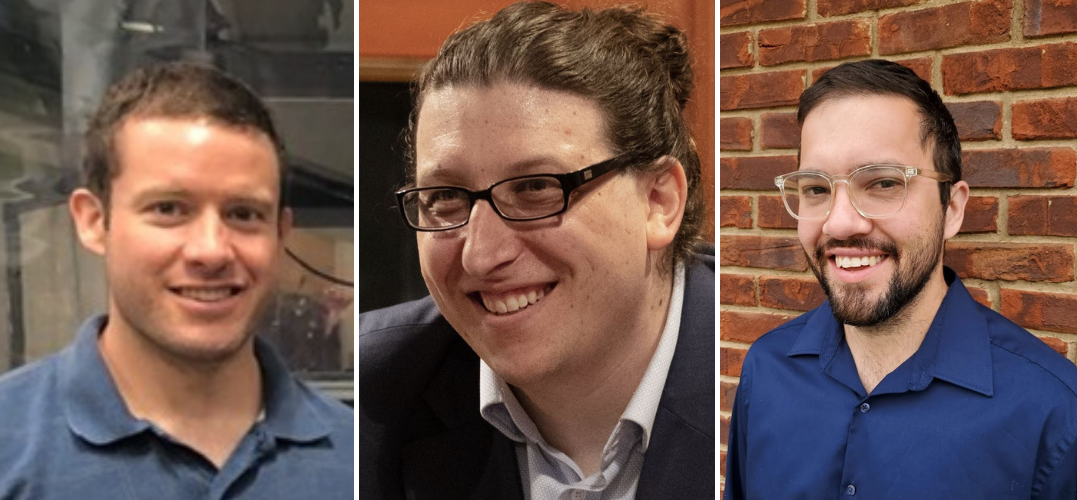Quantum Technology Center Adds Three New Fellows
The Quantum Technology Center (QTC) at the University of Maryland (UMD) is pleased to announce three new fellows joining from the DEVCOM Army Research Laboratory (ARL) located in Adelphi, MD: Drs. Joseph Britton, Physicist; Jonathan Hoffman, Materials Scientist; and Kevin Cox, Physicist. “Our fellows bring remarkably diverse skills to QTC,” said Ronald Walsworth, QTC’s founding director and UMD professor. “We are excited to work with Joseph, Jonathan, and Kevin to expand research in quantum computing, networking, sensing, and materials.” Dr. Fredrik Fatemi, branch chief for Quantum Science and Technology at DEVCOM ARL and associate director of QTC, adds, "These scientists will deepen our collaborations, bringing impressive expertise and complementary backgrounds to QTC." Joseph Britton Dr. Joseph Britton leads the Trapped Ion Quantum Science Group at ARL. Dr. Britton's group is focused on Army-centric objectives that build upon entanglement distribution including enhanced metrology. The lab is working to augment established quantum information processing techniques in the 171Yb+ ion with direct generation of high-fidelity ion-entangled photons at telecom wavelengths. Prior to joining ARL Dr. Britton was at NIST in Boulder, CO where the scope of his work included quantum simulation, quantum computation and cosmic microwave background detector development. He received his PhD in atomic physics from the University of Colorado and a BA from the University of Chicago. Jonathan Hoffman Dr. Jonathan Hoffman completed his Ph.D. in 2014 from UMD-College Park working on hybrid quantum systems using optical nanofibers. He then joined Booz Allen Hamilton as a Science, Engineering, Technical Assistant supporting program managers at DARPA to develop and execute programs in quantum information science, positioning, navigation, and timing (PNT), optics, metamaterials, and chemical spectroscopy. Dr. Hoffman joined DEVCOM Army Research Laboratory in 2019. His work spans both research and program management in quantum sensing and PNT. He brings experience in cold atom physics and quantum defects, and interest in developing high performance, low size, weight, and power, defect-based magnetometers and clocks. Kevin Cox Dr. Kevin Cox and the neutral atom team at ARL in conjunction with QTC are leading development in the emerging fields of quantum sensing and information processing using collective quantum physics. Kevin received his PhD in Physics from the University of Colorado at Boulder in 2016 and was subsequently the recipient of the first Distinguished Postdoctoral Fellowship offered by the Army Research Laboratory. As a postdoctoral researcher, Kevin helped lead the ARL neutral atom quantum science team as they invented a new type of high-capacity quantum processor and performed world's first demonstrations of RF communications using Rydberg quantum sensors. As an ARL physicist and QTC fellow, Kevin is helping pioneer quantum physics and technology using laser-cooled atoms, Rydberg atoms, and cavity quantum electrodynamics. QTC collaborates with industry and government labs to help take promising quantum advances from the lab to the marketplace. QTC is training students in the development and application of quantum technologies to produce a workforce educated in quantum-related engineering. QTC was created at the University of Maryland, College Park through a partnership with the A. James Clark School of Engineering, the College of Computer, Mathematical, and Natural Sciences, and the DEVCOM-Army Research Laboratory to innovate, translate, and educate in quantum technology, with a focus on real-world applications and training the next generation of quantum leaders.
Related Articles: June 1, 2021 Prev Next |


